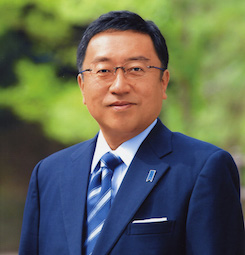By Isamu Ueda*
In Japan, “Peace and Security Legislation” has been a main focus of deliberations in the Diet this year. How Japan could ensure the country’s security in response to the changing security environment has been discussed.
Debate has also focused on the extent to which Japan should contribute to the peace of the international community. Following meetings between the ruling parties over one year, the Japanese government submitted this legislation to the current Diet session.
Primarily, this legislation will enable Japan to take measures for self-defense even when an armed attack against a foreign country that is in a close relationship with Japan occurs, if the attack threatens Japan’s survival. This is the “limited” exercise of the right of collective self-defense for the sake of Japan’s survival. So-called “complete” exercise of the right to collective self-defense, legitimate under Article 51 of the United Nations Charter, is still not permitted under Article 9 of the Japanese Constitution.
Secondly, Japan will be able to make more proactive contributions to peace operations that are authorized by the United Nations. Yet, Japan’s support activities shall be conducted outside ”the scene where combat activities are actually being conducted” because of constitutional constraints. It is not true that Japan will become “belligerent” as a result of this new legislation. Japan has never waged a war over the past 70 years, and will remain a pacifist state as before.
The author is New Komeito Party member of Japan’s House of Representatives and Chairman of the party’s International Committee.


